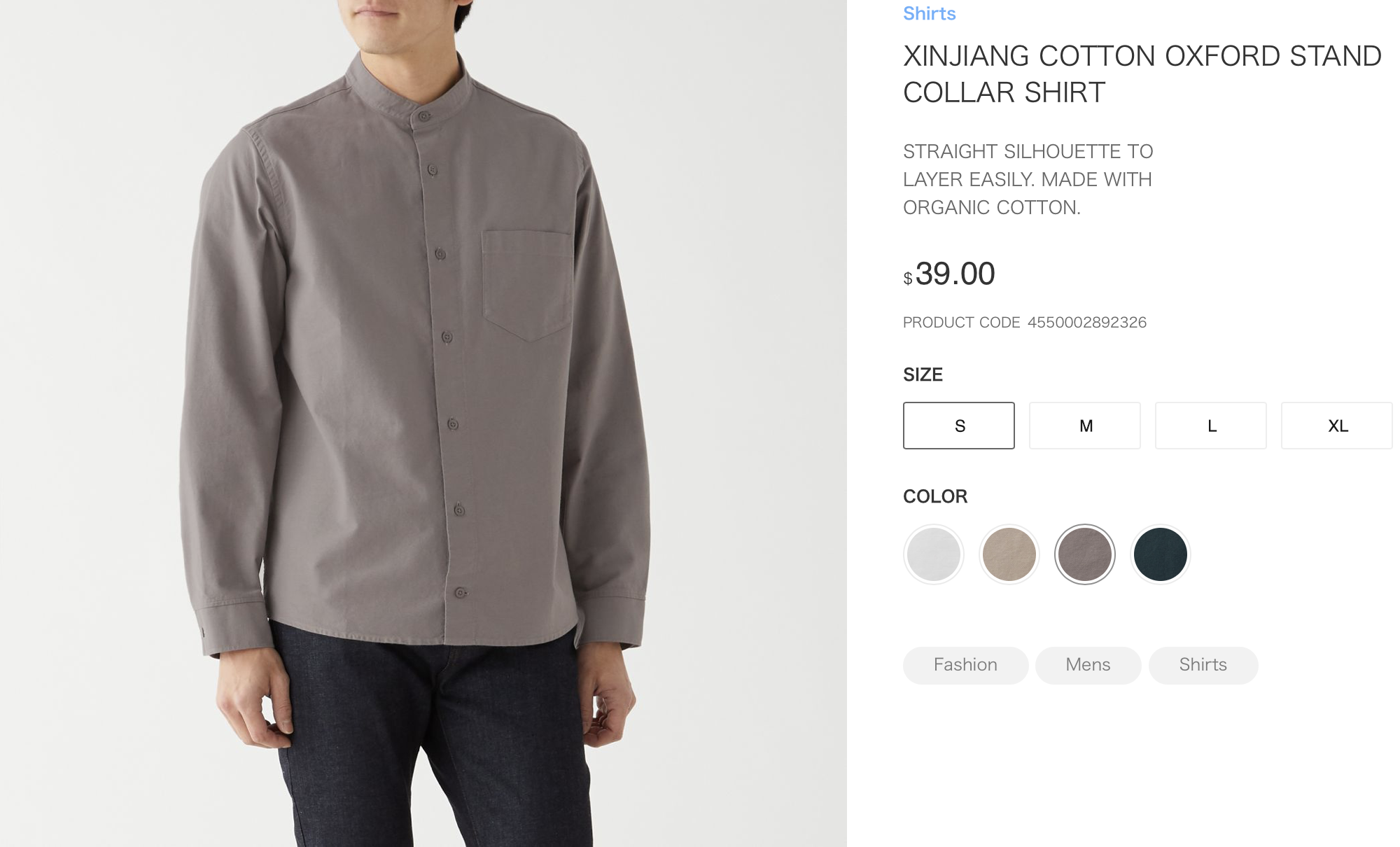Muji, Uniqlo tout use of cotton from Chinese region with Uighur forced labor

In a stunning display of greed—or possibly deep ignorance—two popular Japanese clothing brands have purposely turned a human rights tragedy into a selling point: Muji and Uniqlo have both been touting the fact that the cotton for their clothing comes from Xinjiang, China, an area in which a million Muslim Uighurs have reportedly been detained in “reeducation” camps.
While the Chinese government insists these camps are “vocational training centers,” former detainees have told human rights groups and journalists that they were held in prison-like conditions in which they were tortured, constantly surveilled, and raped. Australian broadcaster ABC revealed earlier this year that Uighurs were being rounded up and sent to work in textile factories. China produces about 22 percent of the world’s cotton, according to an October report from the Center for Strategic and International Studies, a Washington-based nonprofit. Uighurs and other Muslim minority groups make up about half of Xinjiang Province’s 24 million people.
Muji launched its “Xinjiang Cotton Collection” on May 17, and hyped on their website that their shirts are “made of organic cotton delicately and wholly handpicked in Xinjiang.”
“What?! They're actually using that as a slogan?!” Sophie Richardson, China director at Human Rights Watch, told ABC. “Have they somehow missed two straight years of news about gross human rights violations in Xinjiang?”
In August, Muji released a document about preventing forced labor, saying it was “aware that the risk of modern slavery and human trafficking exists within our own operations and in the supply chain.”
“We are committed to eliminating and preventing such risk as much as possible," it read.
ABC’s November 3 report said that Uniqlo’s site advertised a men’s shirt as being “made from Xinjiang Cotton, famous for its superb quality.” The reference, however, appears to have since been deleted.
H&M, Esprit, Adidas, Australian Target, Ikea and H&M also have cotton from Xinjiang somewhere in their supply chains, according to The Wall Street Journal and ABC.
The Australian Strategic Policy Institute said that since early 2016, 28 Uighur internment camps they’ve studied have increased 465 percent in size. Researchers have utilized satellite mapping to track the growth of the camps—finding living witnesses willing to speak is difficult. China has repeatedly denied the existence of the camps, with Hu Lianhe, an official with a role in Xinjiang policy telling the U.N. Committee on the Elimination of Racial Discrimination in 2018: “There is no arbitrary detention. There is no such thing as re-education centers.”
More articles by Category: Economy, International, Violence against women
More articles by Tag: China




























